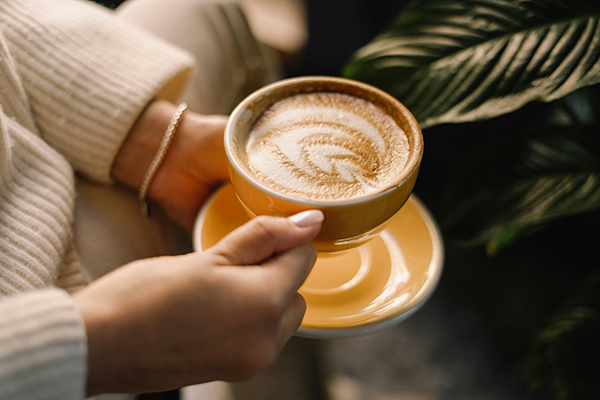
The best thing about using No Buy July to stop shopping is that you make the rules. You get to decide which non-essential items are on your no buy list. You can also choose to plan your shopping ban for a full month (any month) or a couple of weeks. If you want to make an exception for your daughter’s birthday (like I do), or for a pre-planned vacation you can do that.
If you struggle with shopping or overspending, or just can’t resist a purchase when something catches your eye, you are not alone. Even though I’ve been intentionally living with less for years, sometimes I want something new, even though I don’t really need it. Or, if I’m not paying attention, I spend mindlessly at the grocery store or other places when I’m buying things I think I actually need. can be difficult to change!
Why you may want to stop shopping:
Stop shopping for non-essentials when you …
- are paying off debt.
- want to eliminate credit card debt.
- want to cultivate more intention.
- are going through a big change in your life.
- struggle to communicate about money.
- have too much clutter.
- want to build an emergency fund.
- are addressing a shopping addiction.
- realize stuff doesn’t make you happy.
- want to change your shopping habits.
No Buy July will help you understand why you shop and how to slow down your spending.
Buying things isn’t bad or wrong, but shopping to feel a certain way, or to prove yourself to others or because you think something will make you feel happier or more successful doesn’t work (at least not in my experience). Notice where, when and why you shop, how much you spend, and what you buy. You could guess, but the most accurate, impactful method is to track your spending for 30 days. Track your spending on paper (or in your notes app). Take a quick note each time you spend. Include the item you buy and how much it is. For closer examination, write a few sentences about what’s going on or how you were feeling when you made the purchase. You may be able to spot some patterns at the end of your experiment.
After tracking your spending for a month, or if you just know it’s time to stop shopping, write down your why. Why do you want to stop shopping? Do you want to trade shopping for …
- more money?
- less clutter?
- more time?
- self care?
- less decision fatigue?
- more energy?
Your reason may be different, or may include all of the above. Once you’ve figured out why, write it down and keep your note handy so you can see it whenever you are tempted to shop. or a Low Buy July if you want to save money and learn more about your shopping and spending habits.
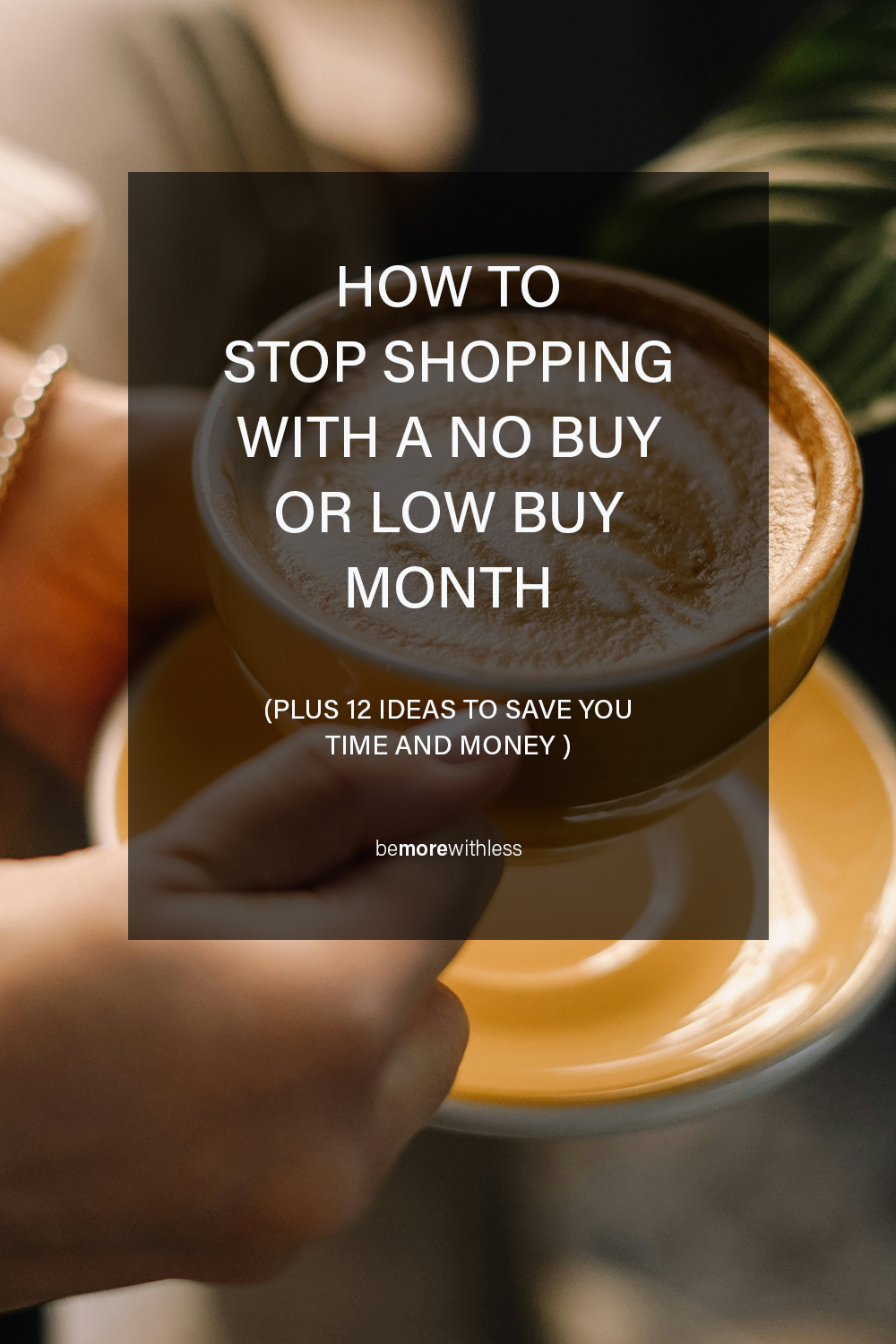
How to stop shopping: 12 ideas that will save you time and money
Use these tips for your No Buy July or anytime you want to institute a shopping ban. It’s a great way to slow down, reset and consider your financial habits moving forward.
1. Decide what you really want.
So often instead of figuring out what we actually want or need, we numb our feelings with something that feels good immediately. An impulse purchase can be distracting temporarily but eventually we circle back to why we needed that shopper’s high to begin with. Before you buy something new because you are bored, sad, frustrated or even celebrating, decide what you really want. How do you want to feel? What could you do besides shopping to feel that way? For instance, if you are frustrated, taking a walk may provide some relief.
2. Remove temptation if you want to stop shopping.
Remove temptation and encouragement to shop by unsubscribing from your favorite store newsletters. Steer clear of one-click shopping. Remove your payment methods from sites that make it too easy to shop. Don’t help friends shop during your shopping ban. Stop window shopping, reading magazines, and following shopping recommendations from your favorites on social media. Where do you enjoy spending money? Don’t go there.
3. Delay your purchases.
Timing is everything, especially when it comes to an impulse purchase. your purchase for at least 30 days and see if you are still as excited about it as you were initially. Chances are the desire will pass. If it helps, buy the item on paper. Write it down or add your potential purchase to your notes app along with how much it is. At the end of the month, tally up your items and ask yourself if you want to use what you saved to go buy all of those items now. For more reinforcement, look around your house. If you had all of your money, time and energy back from buying all the stuff there, would you spend it the same way?
4. Make your own shopping ban rules.
Make a commitment to for all non-essential items for two weeks, a whole month, three months or for an entire year. If your closet is the problem, try minimalist fashion challenge Project 333. You’ll dress with only 33 items of clothing, shoes, accessories and jewelry and ban shopping in those categories for 3 months. Find some joy in making your own rules as you take a step back from shopping.
5. Don’t judge or justify mindless spending.
If you slip during your No Buy July and purchase something you didn’t mean to, resit the pull to harshly judge yourself. Instead, see if you can return it. Notice why you made that decision and see if you can shift something so you won’t do it again. Don’t justify your mindless spending either. You can always find an excuse for shopping. From gifts, to convincing yourself that you need something new for an upcoming event, to just in case shopping, it won’t be hard to find a little loophole. Instead, remind yourself why you are interested in a No Buy July and reset.
6. Enjoy a daily simple pleasure.
Even when you stop shopping, you can still enjoy the simple pleasures in your life. If you found pleasure in shopping, this might mean redefining the idea of a simple pleasure. It can be something in your day to day life that you may be taking for granted or just not giving it the attention it deserves. From morning walks to an afternoon tea, with less time shopping, you’ll have more time for the little things that bring you real joy.
7. Create space by decluttering.
When I was paying off my debt, I started decluttering. I had more time and energy to deal with what I had since I wasn’t bringing anything new in. Noticing how much stuff you want to let go of will make you pause before you shop again. If you want to live with less cluter and more peace and ease, I recommend the following articles:
8. Location. Location. Location.
Identify where you spend money mindlessly. When you know a store too well, especially if you are a “preferred customer” you will feel more comfortable spending money. Stay out of the mall, local department stores, and other places where it feels good to spend. If an online store is courting you via a store newsletter, unsubscribe. Impulse shopping can be all too easy when it requires just a click of a button. Where do you enjoy spending money? Don’t go there.
9. Prioritize presence.
What we need is to give ourselves permission to be gentle, slow and soft, to rest when we want, to turn down the noise and feel the ground beneath our feet. You can’t shop your way out of the pain of the past, or shop your way into a secure future. Instead come back to right now. Do you have everything you need for today?
10. Identify spending triggers.
When do you usually shop? Do negative emotions lead to ? Is there a certain time of day that you find you’re more likely to buy things? Identify those triggers so that you can become aware of times you might feel more likely to shop. Incorporate a few of these ideas if you want to stop shopping for a while. Becoming more intentional about how you spend your time, attention, and money will give you freedom and peace.
You don’t have to stop shopping forever, just try it for a while. , get clear on your financial goals, and make sure your hard earned money is being spent intentionally. All the things you want to buy will still be there in a few months, but chances are you won’t be there for them.
11. Start a “what matters” fund.
What really matters to you? If you want to become debt free, support a local charity, spend two weeks in another country, take salsa dancing lessons, build a house, or change careers, start a fund specifically for that. When you are tempted to shop, ask yourself what matters more and make an intentional decision about how you want to spend your money. New purse or dinner in Paris? I’m not suggesting that you can afford to buy a house if you stop drinking lattes, only encouraging you to prioritize your spending goals.
12. Gratitude.
If you aren’t happy with what you have, you likely won’t be happy with what you get. More stuff doesn’t equal more happiness. Keep a gratitude journal or make gratitude part of your morning practice by silently acknowledging a few things in your life that you are grateful for. As the saying goes, it’s not happiness that makes us grateful, but gratefulness that makes us happy.
When you do stop shopping, don’t judge your past behavior. Notice it, but resist making judgements or feeling badly about it. You’ve already paid enough. You’ve paid with your money, time, attention, energy and emotions. You don’t have to continue paying with guilt or other negative emotions. If you’ve decided that this is the time to stop shopping and regret a recent purchase, remember … .
If you’ve decided to change your shopping habits (or any habit), one of the best things you can do is release yourself from any guilt or shame you may be carrying for past behaviors. You don’t deserve it and it’s not helping you. Moving forward with more joy and ease will help you create new, long-lasting habits.


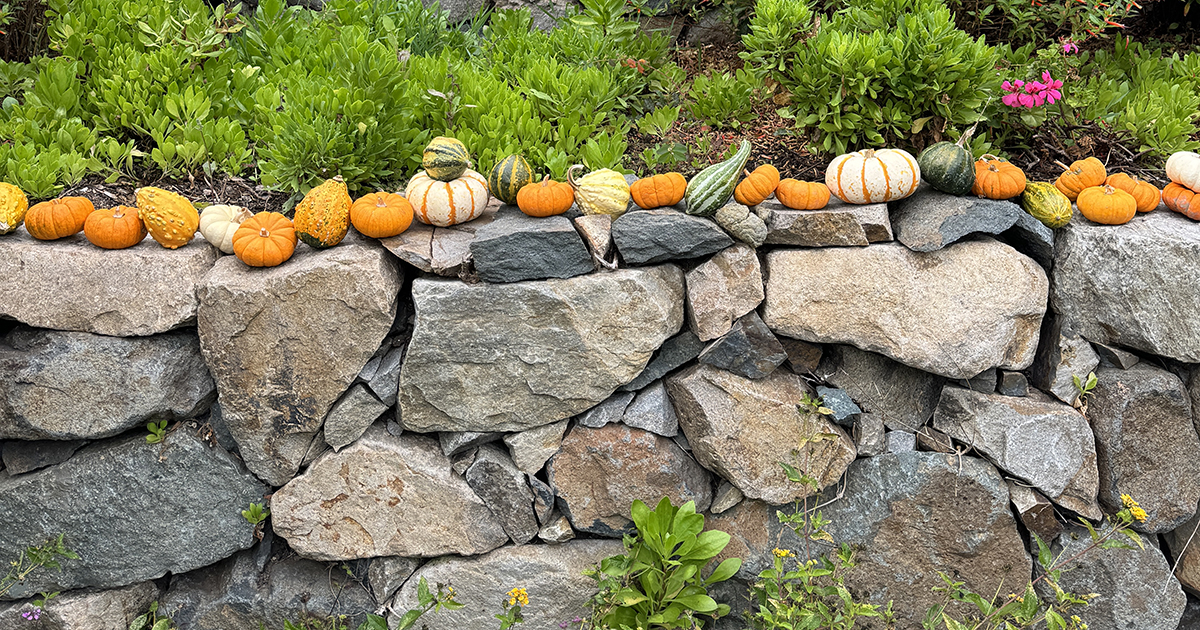
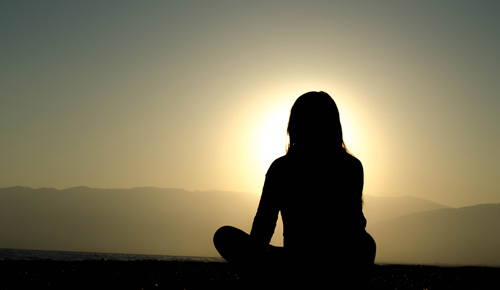
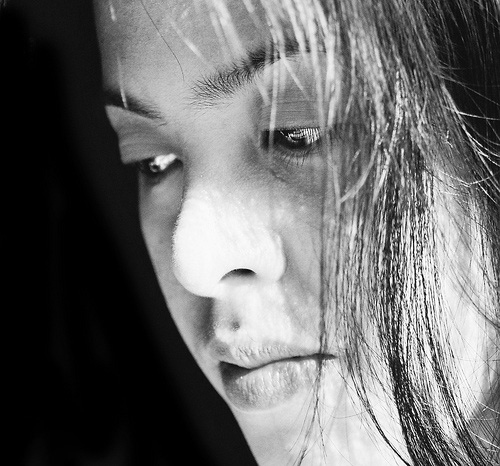


ojxz02
ik1g0j
diyaoj
rp0r2o
ph73k9